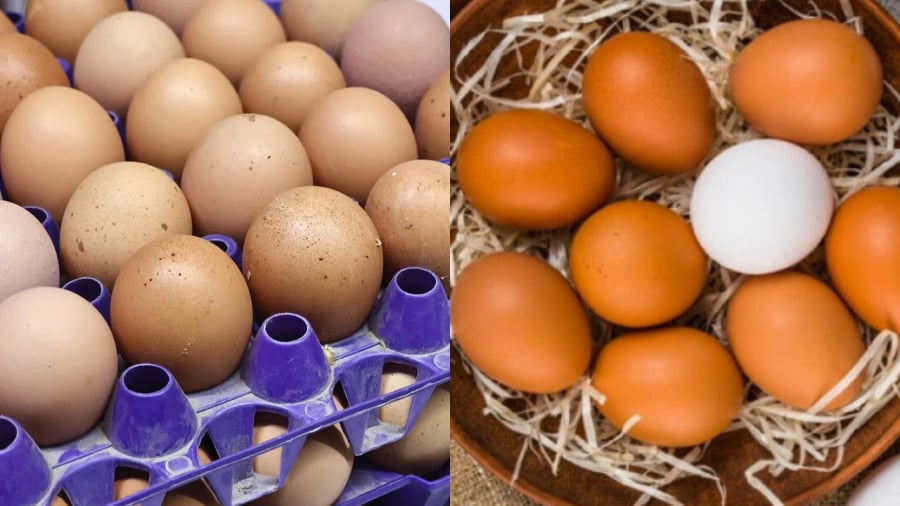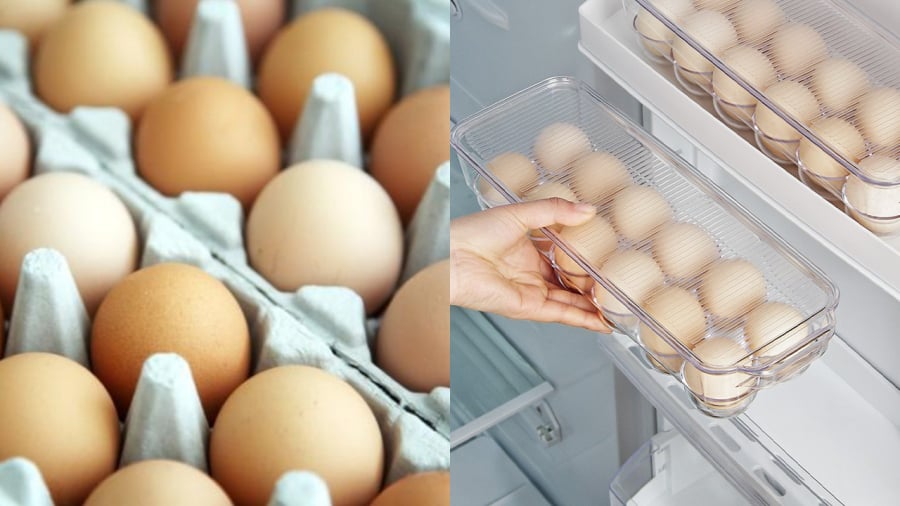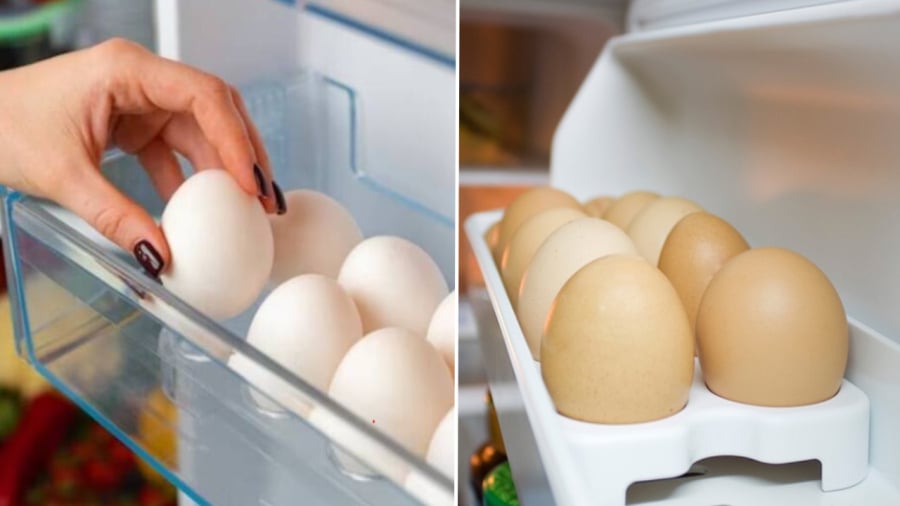Eggs are a nutritious food that is good for your health. Most households will buy a certain number of eggs and store them in the refrigerator for later use. Even though they are kept in the fridge, you still need to pay attention to the shelf life of eggs.
Egg storage time in the refrigerator
Under the condition that the eggshells are cleaned, kept in a sealed box, and stored in the cool compartment (at a temperature of 4 degrees Celsius), eggs can remain fresh for about 3-5 weeks.
This temperature level will slow down the development of bacteria and prevent bacteria from entering the inside of the egg through small air holes on the eggshell.

Refrigeration is effective in controlling the growth of bacteria. In addition, the eggshell plays a role in protecting the egg and preventing damage to the enzymes inside the egg.
However, you still need to remember that eggs stored in the refrigerator will gradually decrease in quality over time. The air pocket inside the egg will become larger, the yolk and egg white will become thinner and less elastic. The longer the eggs are stored, the more they will lose their delicious taste.
The U.S. Food and Drug Administration (FDA) and the U.S. Department of Agriculture recommend that eggs be quickly placed in a carton after washing to prevent the accumulation of water vapor, reduce the risk of bacteria entering through the shell, and be stored at temperatures below 7 degrees Celsius.

Another note is not to stack eggs at the refrigerator door because this position has continuous temperature fluctuations due to frequent opening and closing of the refrigerator throughout the day.
Egg storage time at room temperature
The storage time of eggs at room temperature will be much shorter compared to refrigerated eggs. If kept at room temperature, you can only keep eggs for about 7-10 days.
Precautions before putting eggs in the refrigerator

In addition, you need to keep the eggs away from foods with high oil content, such as onions, ginger, and chili. The oil in these foods can penetrate through the small air holes on the eggshell and cause the eggs to spoil quickly.






























